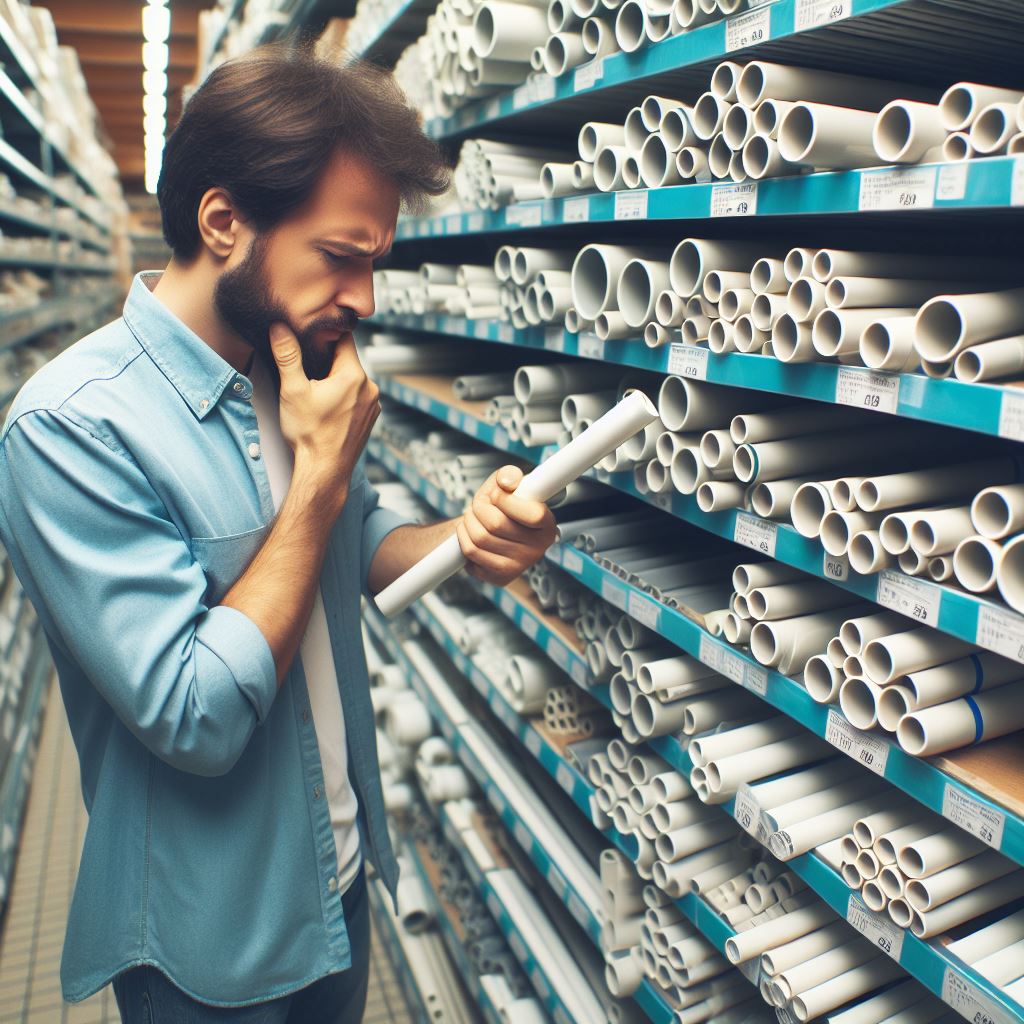PVC In: Polyvinyl Chloride (PVC) is a versatile plastic material that many industries and applications widely use. With different types of PVC available, choosing the right one for your specific needs is crucial. Whether you’re a homeowner, contractor, or DIY enthusiast, understanding the distinctions between different types of polyvinyl chloride can save you time and money. In this article, we’ll dive into the different types of PVC, their applications, and factors to consider when making your choice.
Introduction
Imagine this scenario: you’re planning to renovate your home, and you need to install new plumbing pipes. You walk into the hardware store, and the different types of PVC pipes on the shelves instantly overwhelm you. You’re not alone! Many people find themselves baffled by the options available. That’s why we’re here to guide you through selecting the right type of PVC for your needs. We’ll cover the basics of what polyvinyl chloride is, explore the various kinds, and provide essential tips for choosing the best one for your project.
What is PVC?
Polyvinyl Chloride, commonly known as PVC, is a synthetic plastic polymer that is rigid yet lightweight and highly durable. It’s used extensively in construction due to its strength, resistance to moisture, and cost-effectiveness. PVC can be found in a range of products, from plumbing pipes to flooring, window frames, and even clothing.
Types of PVC
Rigid PVC (uPVC)
Unplasticized PVC (uPVC) is a hard and firm form of PVC. Because it is not softened by plasticizers, uPVC is robust, making it perfect for applications that require structural strength.
Common Applications:
- Pipes and fittings: Widely used in plumbing and drainage systems.
- Window frames and doors: Provides excellent insulation and durability.
- Electrical conduits: Safeguards electrical wiring from moisture and potential damage.
Pro Tip: uPVC is ideal for long-lasting external structures due to its resistance to weathering and impact.
Flexible PVC
Flexible PVC is made by adding plasticizers, which make the material more pliable and softer than its unplasticized counterpart.
Common Applications:
- Cable insulation: Offers flexibility and resistance to abrasion.
- Vinyl flooring: Provides comfort underfoot and is easy to clean.
- Medical tubing: Safe for medical use and easily adaptable to various shapes and sizes.
Chlorinated PVC (CPVC)
CPVC is produced by chlorinating PVC resin. The additional chlorine makes CPVC more flexible and capable of withstanding higher temperatures than standard PVC.

Common Applications:
- Hot and cold water plumbing: Suitable for domestic and industrial water distribution.
- Chemical processing: Resistant to corrosive substances, making it ideal for industrial processes.
- Fire sprinkler systems: Withstands high temperatures, crucial for safety equipment.
Cellular PVC
Also known as foam PVC, cellular PVC is created by incorporating tiny air bubbles into the material, making it lighter and often used in aesthetic applications.
Common Applications:
- Trim boards and mouldings: Excellent for decorative purposes without compromising durability.
- Signage: Lightweight and easy to cut into different shapes.
- Building materials: Provides thermal insulation and is easy to install.
Factors to Consider When Choosing PVC
Temperature Resistance
Consider the temperature conditions your polyvinyl chloride application will face. For instance, if you’re dealing with hot water systems, CPVC would be a better choice due to its higher temperature tolerance compared to standard PVC.
Chemical Compatibility
Assess the chemical environment where the polyvinyl chloride will be used. If exposure to chemicals is expected, like in chemical processing or laboratory environments, CPVC will provide better resistance.
Durability and Longevity
For long-lasting applications exposed to external factors like UV radiation and impact, uPVC is a robust choice, offering high durability and low maintenance.
Flexibility Requirements
Flexibility needs dictate whether you should opt for flexible polyvinyl chloride or a more rigid form. Flexible PVC is better for movable applications like hoses and tubing, while uPVC is suitable for static installations like window frames.
Cost-Effectiveness
While CPVC and cellular PVC may offer specific benefits, they are typically more expensive than standard rigid polyvinyl chloride. Balancing your budget with the material’s specific advantages is crucial for a cost-effective solution.
Conclusion
Choosing the right type of PVC depends on your specific application requirements, such as temperature resistance, chemical compatibility, flexibility, and budget. By understanding the unique properties and applications of different types of polyvinyl chloride, you can make an informed decision that ensures the success and longevity of your project.
Takeaway Message: The next time you find yourself puzzled in the PVC aisle, remember that the key to making the right choice lies in understanding the specific needs of your project and matching them with the appropriate type of PVC. Happy building!
For further reading on polyvinyl chloride properties and applications, check out this comprehensive guide on PVC. If you have any questions, feel free to leave a comment below or contact a local expert for personalized advice.
Rigid PVC Density: Choosing The Right Material For You